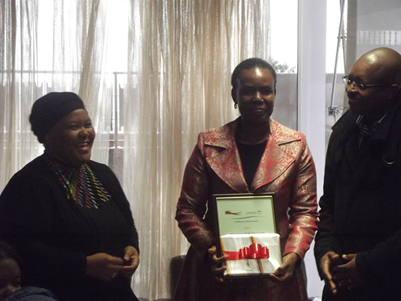News & Events
Student Affairs Department celebrates academic excellence
On Tuesday 30 May 2017 the Unisa Student Affairs Department celebrated academic excellence among staff members who completed their qualifications between 2012 to 2017. The programme was directed by the Deputy Director of Advocacy and Resource Centre for Students with Disabilities (ARCSWiD), Dr Sindile Ngubane-Mokiwa. She said that if we look at the NRF figures, South Africa is very low on PHD completions and we should move up the NQF level.

Among the attendees was the newly appointed Unisa Dean of Students, Dr Sibusiso Chalufu, who handed over the rewards certificates to the students and staff. A Unisa Law student, Irene Chanyuka, who is visually impaired and writes her exams using braille slate and stylus, received a laptop. The laptop was donated by the World Assembly of Muslim Youth in South Africa.
Dr Sibusiso Chalufu delivered a message of support at the event. He emphasised the importance of acknowledging and celebrating these kinds of events. He said that Student Affairs used to be seen as a nice to have department but now universities have realised the importance of its services. ‘’We need to realise that the work we do is critical for academic support,’’ he said. He concluded by saying we still have achievements to achieve and we should not stop now.
Listen live to Unisa Radio: http://radio.unisa.ac.za/live
FB: www.facebook.com/unisaradio
Twitter: www.twitter.com/unisaradio
*By Nancy Legodi
Publish date: 2017/06/08

